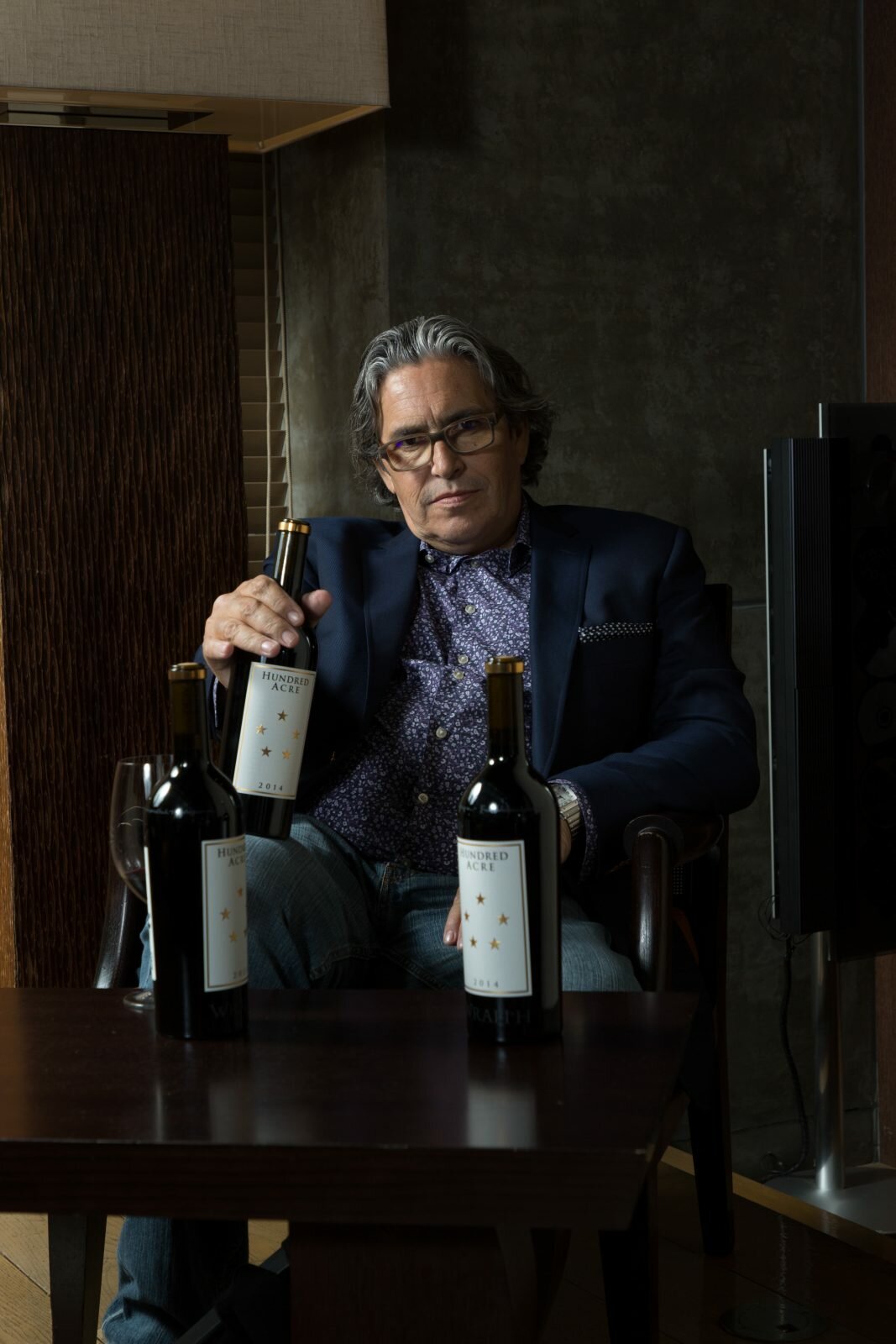Jayson Woodbridge is re-lighting his cigar, leaving his wife Helen Mawson and I for a moment as he finesses a finicky lighter a few steps away. “My wife, she’s my right hand; a winemaker and a great talent in her own right,” he calls out. “Everyone gives me all the attention but she’s equally important at making Hundred Acre.”
Even from afar, he owns the conversation. But it’s a sweet gesture from a man often labelled a “contrarian” and even “volatile”.
A Canadian who has literally planted roots in California’s Napa Valley, Woodbridge loathes to do press. Not that he has to. Hundred Acre (named after the fictional forest in Winnie-the-Pooh) reportedly has a five-year waitlist that numbers in the thousands.
“He’s the big guy, you know? He’s the refrigerator in the room. I can’t play that part,” Mawson points out. A New Zealand native, she predates Woodbridge’s entry to both Napa and winemaking. Whereas he purchased Kayli Morgan — his first vineyard plot — in 2000, Mawson has worked in the Napa wine industry since 1998, first with Joseph Phelps, then Miner Family and Vineyard 29 before joining the Hundred Acre winemaking team.
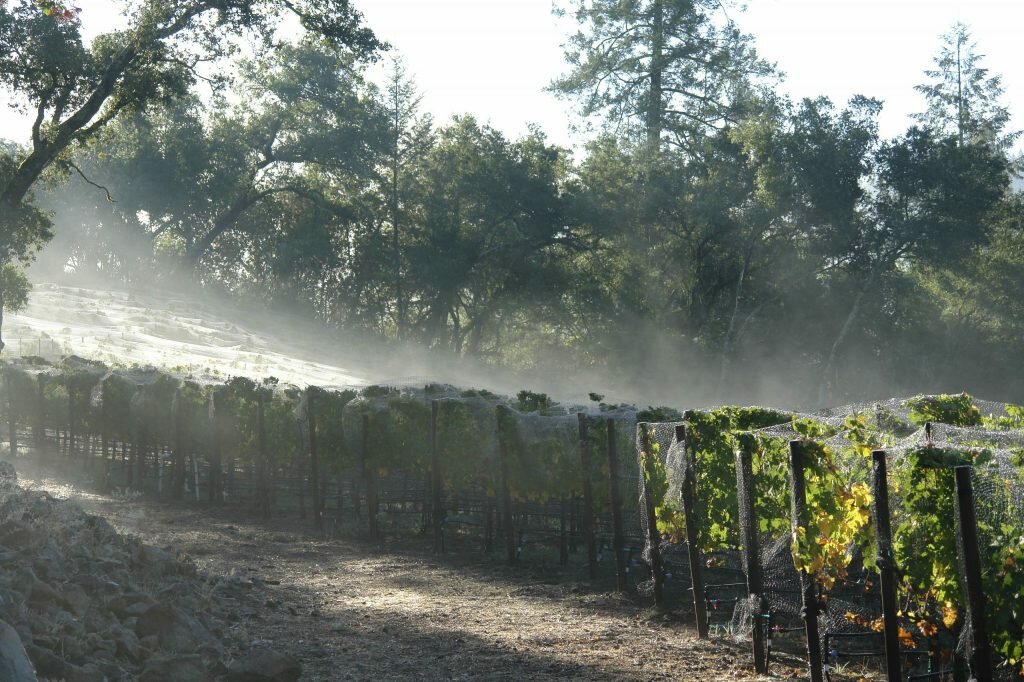
(Image: Hundred Acre)
Back in his seat, Woodbridge continues: “She keeps the ship on a steady course.” A good ballast, I gather, to his single-minded pursuit of perfection. “I was born to this destiny. When I’m making wine, I’m an unstoppable force of nature. I believe in the greatness of what I’m doing,” he says of his quest. Hubris, perhaps. But in a rare interview, he told Wine Spectator: “I had cancer when I was 18, and I don’t view the world the same way as everyone else. I want to make sure everything I do is the top of the game.”
That Hundred Acre has made its name on mostly single-vineyard wines — among them cabernet sauvignon from the 3.6-hectare Kayli Morgan Vineyard (at the base of Howell Mountain) and the 6-hectare Ark Vineyard (set in an ancient caldera on Glass Mountain in St. Helena) — is no surprise. Revealing the purest expression of both varietal and place is a winemaker’s hardest challenge, and that’s why Woodbridge chooses to excel at it. “It’s like climbing K2 in wintertime,” he states.
Grapes are farmed organically but aren’t certified, because “if a bug is ever found, I’m going to spray the son of a b***h”. Harvests are taken in berry by berry, over several passes, by full-time rather than seasonal staff. And in his underground winery, the fruit undergoes an “obsessive/compulsive barrel regime” that may see upwards of 100 micro picks, each fermented separately.
The kicker, and what makes Woodbridge’s story all the more intriguing, is that he’s a former investment banker with no formal wine training. He’s just a guy with a formidable palate and keen mind who believes in his preordained destiny. And on this afternoon in Singapore, he turned on the charm.
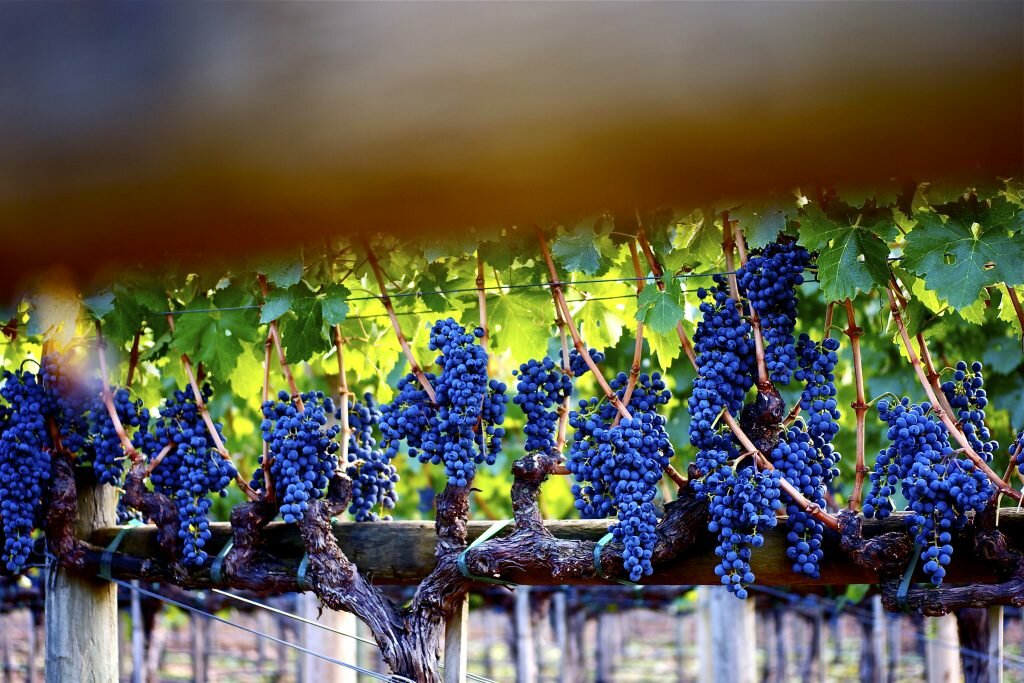
(Image: Hundred Acre)
How did your passion for wine begin?
My grandfather started giving me my own little glass of wine when I was about five years old. He told me wine was part of life and part of family; it was essential and sacred. And that created curiosity. As a teenager, my friends and I used the money from our parttime jobs and went to the wine store to try every bottle we could. Then as a banker, I had a virtually unlimited budget, which I used. I fell in love with wine. I saw the magic of it. But I soon realised that my friends, though collectors, were not tasting and smelling everything that I was. I had a gift. What they saw was a black-and-white TV, and me, high def. One day in 1990, I walked into a vineyard and had an epiphany. I said, “I gotta do this.” So I started saving money. Then I took everything I had — all in, like Texas Hold’em — and started Hundred Acre.
Where did your aha moment occur?
At Kayli Morgan. But I didn’t know I was going to make wine at that time. I went to Napa every year. The light in the valley in the evening — it’s like you can cut a cube and set it on the table, and there it will glow forever. I thought it was one of the most magical places in the world. It seduced me and made me feel like a kid again. I still feel that way. I feel like God has blessed me, and I’m not highly religious. It was destiny. And that destiny has always kept me driven. But for a couple of years, I was just unsure. It wasn’t until around the 2002 vintage that I really started to feel like I was coming into my own. And the 2002 got 100 points [from Wine Spectator]. It took time for me to totally feel like I was 100 percent there.

(Image: Hundred Acre)
Is wine nature’s art, or the art of a person?
Say you have 10 million racehorses, and one is the great one. Is it the rider? Or is it the horse? I’ve been blessed with great horses. What I do is handle it with the gentlest of hands. And when I’m making the wine, I let my heart speak. A lot of winemakers fiddle with their wine. They second-guess themselves. I never have doubts. I taste every single barrel and I blend everything in my head. We’re not sitting there with beakers and taking little samples and trying this and trying that. In my head, I’m saying, “This barrel goes to Wraith, that goes to Deep Time”. And we put it together in the exact proportions in my head — a half percent of this, one percent of that… Other winemakers don’t do that. They all do it in physical form. Sounds crazy, but that’s what happens.
Robert Parker routinely awards perfect scores for your wines. Do critics like him matter?
He’s an anomaly in the world. He has an encyclopaedic memory. Whether you agree with what he says or you don’t, his descriptors are like a map. If you taste a wine that you like, his descriptors are the map you use to find another wine you are probably going to love. His greatest value is his consistency and incredible palette. He provides a guidepost. So does it matter? If it guides you to something beautiful, then it has great value.
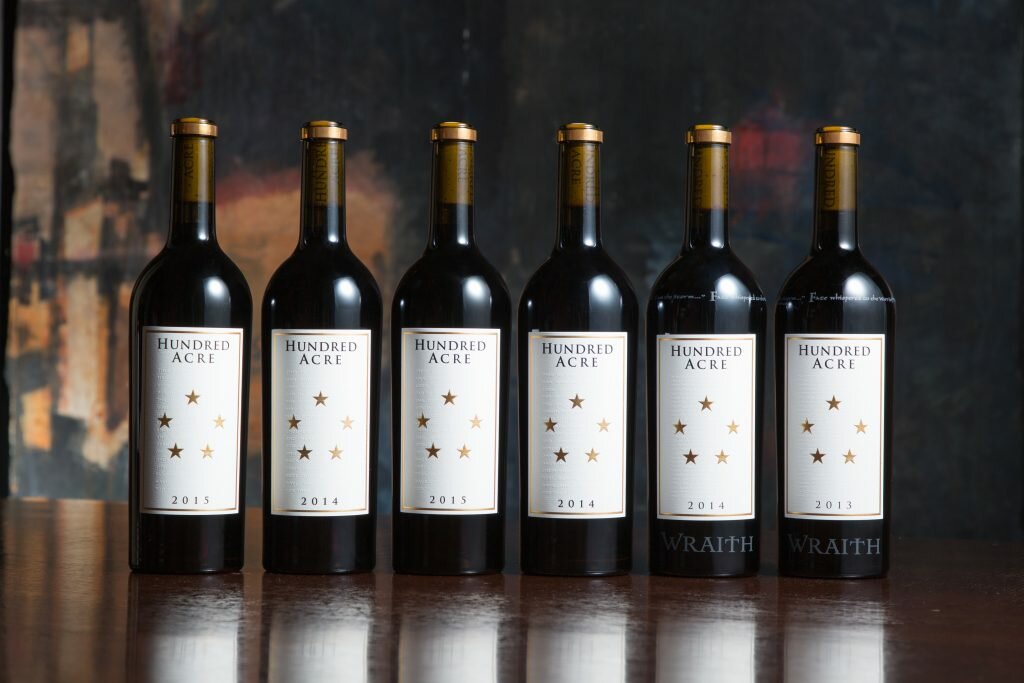
(Image: Hundred Acre)
How about social media? Everyone seems to be an influencer these days.
I think the meritocracy or democracy of social media is fine. But in many cases, it’s a lot of people voicing opinions about things they don’t know much about. I don’t really give a f**k what any of them have to say — you can quote me on that. The people that love wine form their own opinions. They’re educated people. They decide what they love. And nobody on the internet is going to tell them otherwise. We have social media influencers call the winery, and the response is always, “No”. I get calls from press all over the world all the time too. And we just say, “Thanks. No.”
Lucky us. So how should good wine make one feel?
I don’t know anything about good wines. I know about wines that are ethereal; that are great wines amongst the one percent of the one percent. I have a story: a very successful person (who shall be unnamed) came to us for permission to visit. He had a rare cancer and on his bucket list was drinking his favourite wines at the winery. We said ‘OK’ and he came. Then the years went on, and I thought, well, he’s gone. One day he called: “I’m still here, and I want to buy more Hundred Acre because in my times of great trouble, I drank all I had.” It was very meaningful. A lot of our clients are industrialists, CEOs… men and women in positions of power. And with that power comes a lot of pressure. Having a great wine at your side gives you a moment of respite. It sometimes helps you deal with that pressure and offers you perspective.
-

Wines are aged for a minimum of 30 months in hand-selected French oak barrels.
(Image: Hundred Acre) -
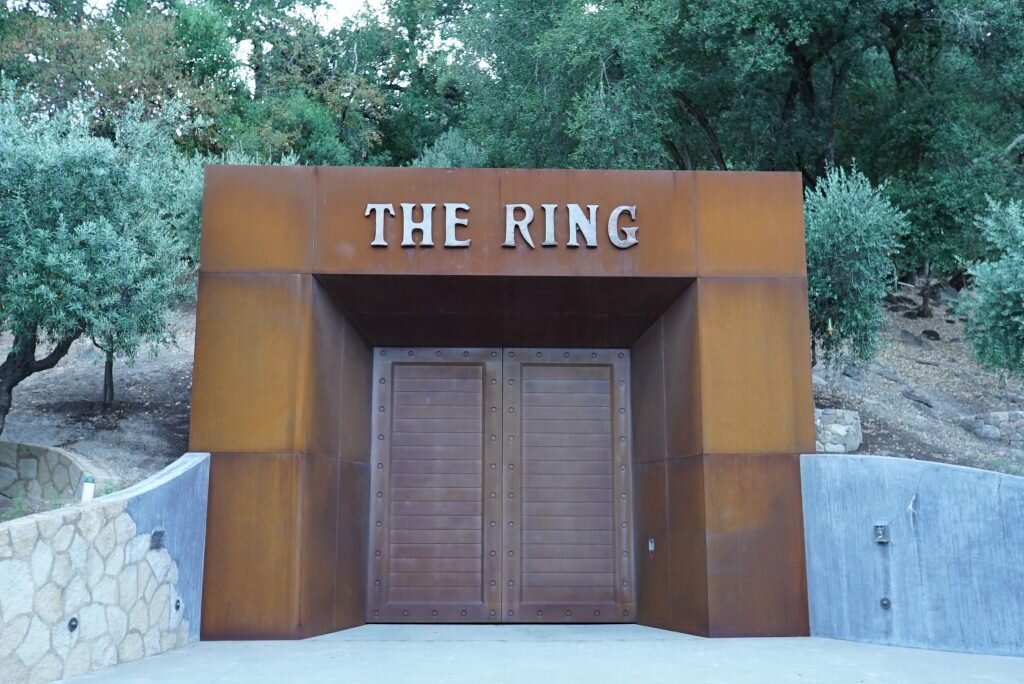
Built into the side of a mountain, the underground winery, known as The Ring, is fire- and earthquake-resistant.
(Image: Hundred Acre)
Few have access to your bottles.
We’re not Ferrari. With demand, they can build another factory. I can’t. I make single-vineyard wines. We have an absolutely finite amount of wine. So what price do you pay for the ultimate limited resource that’s magical, and can make your soul sing a little? We don’t even sell to France or China even though we get requests all the time. Only 60 bottles of Kayli Morgan came to Singapore [distributed by Grand Vin]. We don’t seek out markets. We want the wine to go to people doing great things and great food, and who are collectors that love the wine.
Let’s talk about climate change. Look at the Australian bush fires. Fires have also raged through California’s Wine Country the last few years.
I do worry, not so much for Napa Valley — because of the influence of the Pacific Ocean — but for the rest of the world. I’m concerned about pollution in cities and often think about the kind of machines that could be made to fix those problems. Climate change is obviously due to man, but also because the world has changed many, many times. There were once jungles in the Antarctic; so while some of it is nature, I think what man is doing also has to be addressed. It’s just a matter of whether we have the strength to make the hard decisions now. If climate change isn’t on people’s minds, they don’t care about anything in the world.
This story first appeared in the March 2020 issue of A Magazine.
